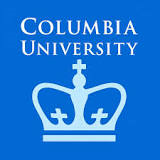What do they do?
Coordinate activities of technical departments, such as taping, editing, engineering, and maintenance, to produce radio or television programs.
Also known as:
Broadcast Director, News Technical Director, Newscast Director, Operations Director, Operations Manager, Production Director, Production Manager, Studio Director, Technical Director
-
2.5%
Change
Ranks #48 in job growth rate180Job Openings
Ranks #26 in net job growth
-
Chapman University
Orange, CA
-
Columbia University in the City of New York
New York, NY
-
Savannah College of Art and Design
Savannah, GA
-
Loyola Marymount University
Los Angeles, CA
-
University of Southern California
Los Angeles, CA
Looking for colleges that offer a specific major? Use the College Match Tool to find your best-matched schools and discover your estimated Net Price!
- Doctorate or Professional Degree (2%)
- Master's degree (16%)
- Bachelor's degree (58%)
- Associate's degree (5%)
- Some college, no degree (12%)
- High school diploma equivalent (6%)
- Less than high school diploma (1%)
Most Popular Majors that prepare Media Technical Directors/Managers
-
#1
-
Degrees Granted
927
-
Female Students
475
-
Male Students
452
-
Median Starting Salary
$39,600
-
-
#2
-
Degrees Granted
842
-
Female Students
511
-
Male Students
331
-
Median Starting Salary
$37,200
-
-
#3
-
Degrees Granted
152
-
Female Students
96
-
Male Students
56
-
Median Starting Salary
$38,000
-
-
#4
-
Degrees Granted
76
-
Female Students
44
-
Male Students
32
-
Median Starting Salary
$37,200
-
-
#5
-
Degrees Granted
58
-
Female Students
45
-
Male Students
13
-
Median Starting Salary
$39,600
-
People in this career often have these skills:
- Active Listening - Giving full attention to what other people are saying, taking time to understand the points being made, asking questions as appropriate, and not interrupting at inappropriate times.
- Speaking - Talking to others to convey information effectively.
- Monitoring - Monitoring/Assessing performance of yourself, other individuals, or organizations to make improvements or take corrective action.
- Coordination - Adjusting actions in relation to others' actions.
- Critical Thinking - Using logic and reasoning to identify the strengths and weaknesses of alternative solutions, conclusions, or approaches to problems.
- Reading Comprehension - Understanding written sentences and paragraphs in work-related documents.
- Judgment and Decision Making - Considering the relative costs and benefits of potential actions to choose the most appropriate one.
- Complex Problem Solving - Identifying complex problems and reviewing related information to develop and evaluate options and implement solutions.
- Time Management - Managing one's own time and the time of others.
- Writing - Communicating effectively in writing as appropriate for the needs of the audience.
- Active Learning - Understanding the implications of new information for both current and future problem-solving and decision-making.
- Social Perceptiveness - Being aware of others' reactions and understanding why they react as they do.
- Persuasion - Persuading others to change their minds or behavior.
People in this career often know a lot about:
- Communications and Media - Knowledge of media production, communication, and dissemination techniques and methods. This includes alternative ways to inform and entertain via written, oral, and visual media.
- Computers and Electronics - Knowledge of circuit boards, processors, chips, electronic equipment, and computer hardware and software, including applications and programming.
- English Language - Knowledge of the structure and content of the English language including the meaning and spelling of words, rules of composition, and grammar.
- Telecommunications - Knowledge of transmission, broadcasting, switching, control, and operation of telecommunications systems.
- Engineering and Technology - Knowledge of the practical application of engineering science and technology. This includes applying principles, techniques, procedures, and equipment to the design and production of various goods and services.
People in this career often have talent in:
- Oral Comprehension - The ability to listen to and understand information and ideas presented through spoken words and sentences.
- Oral Expression - The ability to communicate information and ideas in speaking so others will understand.
- Problem Sensitivity - The ability to tell when something is wrong or is likely to go wrong. It does not involve solving the problem, only recognizing that there is a problem.
- Deductive Reasoning - The ability to apply general rules to specific problems to produce answers that make sense.
- Near Vision - The ability to see details at close range (within a few feet of the observer).
- Written Comprehension - The ability to read and understand information and ideas presented in writing.
- Written Expression - The ability to communicate information and ideas in writing so others will understand.
- Inductive Reasoning - The ability to combine pieces of information to form general rules or conclusions (includes finding a relationship among seemingly unrelated events).
- Far Vision - The ability to see details at a distance.
- Speech Recognition - The ability to identify and understand the speech of another person.
- Speech Clarity - The ability to speak clearly so others can understand you.
- Information Ordering - The ability to arrange things or actions in a certain order or pattern according to a specific rule or set of rules (e.g., patterns of numbers, letters, words, pictures, mathematical operations).
- Fluency of Ideas - The ability to come up with a number of ideas about a topic (the number of ideas is important, not their quality, correctness, or creativity).
- Originality - The ability to come up with unusual or clever ideas about a given topic or situation, or to develop creative ways to solve a problem.
- Category Flexibility - The ability to generate or use different sets of rules for combining or grouping things in different ways.
People in this career often do these activities:
- Direct productions or performances.
- Operate control consoles for sound, lighting or video.
- Determine technical requirements of productions or projects.
- Manage content of broadcasts or presentations.
- Coordinate activities of production personnel.
- Create computer-generated graphics or animation.
- Monitor broadcasting operations to ensure proper functioning.
- Operate communications, transmissions, or broadcasting equipment.
- Inspect communications or broadcasting equipment.
- Train others on work processes.
- Coordinate logistics for productions or events.
- Collaborate with others to determine technical details of productions.
This page includes data from:

 Occupation statistics: USDOL U.S. Bureau of Labor Statistics Occupational Employment Statistics
Occupation statistics: USDOL U.S. Bureau of Labor Statistics Occupational Employment Statistics
 Videos: CareerOneStop, USDOL/ETA and the Minnesota Department of Employment & Economic Development
Videos: CareerOneStop, USDOL/ETA and the Minnesota Department of Employment & Economic Development









